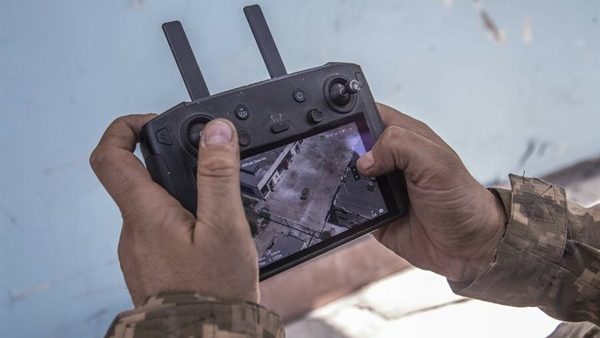The war in Ukraine has led to a fundamental shift in public perceptions of the military utility of drones. Until now, most people saw drones either as a more or less harmless toy with certain implications for privacy on one hand, and as a complex military system that roams the skies searching for terrorists on the other.
The proliferation of drones and the accompanying high-resolution videos of their exploits in Ukraine has blurred these borders. Modified commercial drones easily available in most electronics store across the world are dropping grenades on tanks and dismounted troops, while acting as accurate spotters for pinpoint artillery strikes. Their larger military counterparts are wreaking havoc on supply convoys and armored columns, and they allegedly even contributed to the sinking of the Russian missile cruiser Moskva, which sported one of the more capable air defense systems in Moscow’s Black Sea fleet.
That has made apparent what military planners and researchers have said for a while now: The military utility of unmanned aerial vehicles is still a work in progress, and the saturation of conflict zones with these systems will require changes in tactics and doctrine.
To dive into these issues and their ramifications for both military planners and policymakers, Trend Lines is joined by Ulrike Franke, a senior policy fellow at the European Council on Foreign Relations, where she specializes in military technology, including unmanned aerial vehicles and artificial intelligence.
Listen:
Download: MP3
Subscribe:
Relevant articles on World Politics Review:
The Future of the Global Drone Market Will Not Be ‘Made in Europe’
Anti-Drone Advocacy Just Took a Major Leap Forward
The Campaign to Ban ‘Killer Robots’ Just Got a Boost
Behind the Growth Market in Counter-Drone Technology
Trend Lines is produced and edited by Peter Dörrie, a freelance journalist and analyst focusing on security and resource politics in Africa. You can follow him on Twitter at @peterdoerrie.
To send feedback or questions, email us at podcast@worldpoliticsreview.com.

